Trump's 'personal' foreign policy
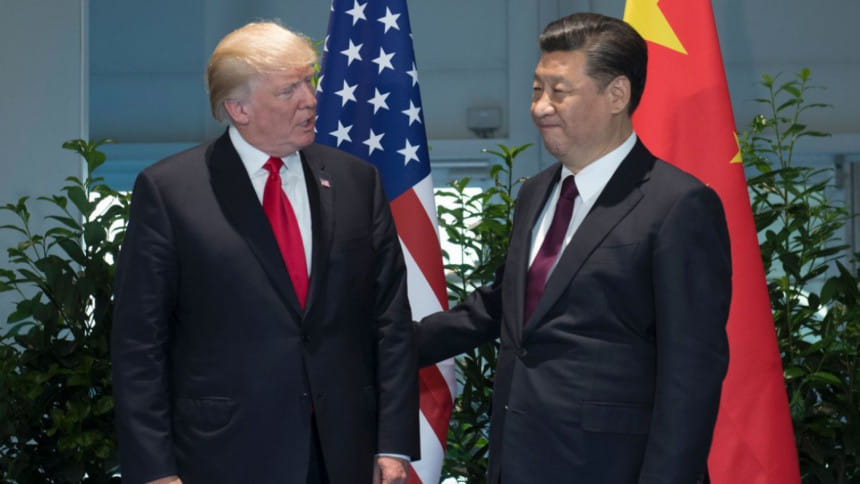
Donald J Trump's foreign policy weltanschauung may be better understood perceptually and through his personal relations than its claim to be practical and pragmatic. This seems to be the message from a purview of four of his policy pursuits: rebalancing trade with China, clipping Iran's wings, anchoring a bold Middle East policy approach upon recognising Jerusalem as Israel's capital, and denuclearising North Korea. They do add up, and there may be something beyond a simple sum of all the parts, but constructing and construing them from unfolding events can also breed confusion.
His election campaign exposed some clear likes and dislikes. Vladimir Putin topped that first category (only now to be toppled by Kim Jong-un), though many competed in the latter: China's mercantilist trade-policy approach; the P5+1 agreement over Iran's nuclear weapons (which he used to lash out at the Obama administration); Muslims of all stripes; illegal immigrants, using Mexico to dramatize his arguments to build a wall and, generally, promote a fortress "America"; and the free-riding Europeans who need to share more NATO responsibilities.
Even with mixed and floating results thus far, it is unlikely his "base" will complain about any of his false-starts, incomplete passes, and back-tracking, which is the best news he can get on the eve of the 2018 mid-term election. He still remains fascinated by Putin, although congressional and Republican pressures (against the Mueller investigation revelations as hindsight), constrains him from exploiting any opportunities. Even by unfolding for Kim, Trump's new fascination may itself be constrained, for example, by appointing hawkish John Bolton as National Security Advisor (the third in his almost 20 months, after Michael Flynn and HR McMaster). North Koreans want to stay away from him. Sharing a "shoot from the hip" approach rarely seen in diplomacy, Kim's and Trump's desperation to meet each other, if not to conclude agreements, may end up on a far more lighter note cracking media jokes with each other (until one collapses from weariness). Protocol, policy substance, and strategic thinking are clearly not on any slate, but having constructed a very delicate relationship from out of the blue, Kim and Trump seem poised only for dramatic results, nothing less.
Four patterns may be proposed from Trump's foreign policy scorecard: his likeness of non-democratic leaders; personal interests playing a disproportionately larger role than at any time since the Nixon/Kissinger combo; congressional constraints regardless of the Republicans controlling both branches; and domestic elections angling strategic foreign policy interests.
Trump stunned the world by meeting China's Xi Jinping in Mar del Lago even before he had gotten his foreign policy act together. Doing that with a Henry Kissinger-type of a guide might have made almost as much news as Richard M Nixon's 1971 ping-pong diplomacy, or Ronald Reagan's rapprochement with Mikhail Gorbachev from 1986, through Secretary of State George Schultz and the Soviet Foreign Minister, Eduard Shevardnadze. A year down the road, and especially after the bilateral trade-talks, both China and the United States agreed to keep their gun-powder dry for now. With mid-term election approaching, Trump's advantage is in not concluding any agreement now, especially when he knows Jinping is his stepping-stone to a summit with Kim, while Jinping knows his best US partner, Trump, is too much on the ropes for a game-winning Chinese blow straight away. One notices the dominance of both domestic patterns, with the personal still under construction, and foreign policy very much in the shadow.
With Iran the game-plan differs. Eliminating Iran's nuclear ambitions is Israel's vital interest being played through US foreign policy in exchange for the United States shifting its embassy to Israel's declared capital, Jerusalem. Since Benjamin Netanyahu boasts Trump's relationship with his country as the best ever with the United States, Mike Pompeo's ultimatum to Iran was gleeful Israeli news. That it also punched Barack Obama for being too "un-'American'" in concluding the P5+1 deal is a bonus for both Netanyahu and Trump. With Iran challenging Saudi Arabia, Trump can now distinguish "good" Muslims from "bad" from his emerging template, lubricate Prince Muhammad bin Salman's Israeli rapprochement, and sell big-volume military materials to Saudi Arabia. He also sees the chance to cripple Iran's deep Syrian involvements, for which Netanyahu's Moscow chit-chat with Vladimir Putin helped.
Trump's vote-inviting Iranian position also predicts future conflict. An anticipated Republican-routing mid-term election next November might produce a finely balanced domestic-international stake in which the personal component may become more catalytic.
Shifting attention from Korea was only temporary: Trump and Kim already seem to be in too much of a verbal and diplomatic trance to not ultimately meet. South Korea's Moon Jae-in diluted the atmosphere by meeting Kim personally, while Jinping also intervened to make sure no war takes place on the Korean peninsula. Kim wants Trump to score his first major foreign policy coup to be over Korea, and rank alongside Nixon's ping-pong diplomacy and Reagan's Gorbachev love-fest in that way. Kim having a side fling with Moon is part of this grand Kim-Trump finale.
China may still hold the aces of this love-fest (and nuke showdown). As Trump himself says, Jinping knows how to play poker to win. He has as much interest in far-flung Iran as in next-door North Korea. Cheap oil awaits, infrastructural projects invite, and a Chinese presence is crucial in Iran. Should Trump find himself bound on that front as well, Israel stands ready to proxy by attacking Iran. If so, dissident Republicans may even be appeased by the 2018 mid-term election, and other foreign policy coups may be attempted.
Without any Persian Gulf conflict, Europeans might not let their US relations sour, bringing a foreign policy benefit Trump could really relish. In the final analysis, two patterns seem set to be confirmed, two predicaments were exposed, and of the two trump-cards remaining in Trump's poker-game, neither is in his own hand.
His fascination for non-democratic leaders has only deepened since he became president; but congressional/Republican constraints upon him still predict the tug-of-war will continue. This is not going to enhance his credentials across Europe, but China can help defuse intensifying transatlantic tensions with its Iranian card.
That points to Trump's two predicaments at this stage: North Korea and Iran. This may not be popular among congressional and Republican hawks, who have not had the chance to be as itchy for quite some time. Mid-term election fortunes and fates may push them one way, and with them the US president. We need to keep an eye as much in and around Iran/Korea as within the United States.
China, it would seem, carries the trump-cards on both fronts. Realistically, though, the US electoral calendar should not be dismissed. What happens in the next four months may be determined by November 2018 electoral calculations. That sets up a two-year cycle that can only intensify after 2018 until Trump's re-election; and given that his "base" has only expanded (more evangelists stand behind him today than when he last campaigned for office), a second Trump term releases lame-duck opportunities when policy preferences do not have to be pinned upon voter preferences. Imagine US citizens sobbing on January 20, 2025 in his Farewell Address.
Dr Imtiaz A Hussain is the head of Global Studies & Governance Program at Independent University, Bangladesh (IUB).



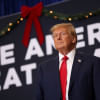
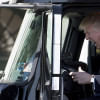
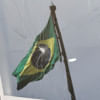
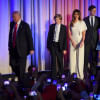
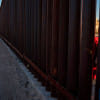


Comments